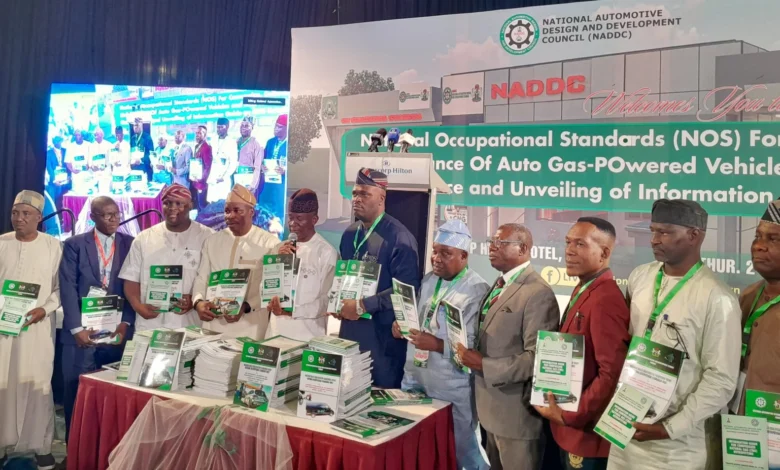Automotive Sector: FG Unveils New National Occupational Standards for CNG, EVs
Automotive Sector: FG Unveils New National Occupational Standards for CNG, EVs

As part of efforts to reposition Nigeria’s automotive sector, the Federal Government has unveiled new National Occupational Standards (NOS) for Compressed Natural Gas (CNG) and Electric Vehicles (EVs).
This was disclosed by the Minister of State for Industry, Trade and Investment, Sen. John Enoh, during the public presentation of the NOS for the conversion, calibration, and maintenance of auto gas-powered vehicles in Abuja.
The event also featured the unveiling of CNG retrofitting guidelines by the National Automotive Design and Development Council (NADDC).
Enoh said the development signaled the government’s commitment to clean energy transition, skill development, and industrial competitiveness.
“This is a demonstration of leadership in action. Under President Bola Tinubu, we’re not just talking policy, we’re implementing real reforms.
“The automotive sector has the potential to drive job creation, industrialisation, and GDP growth,” he said.
He noted that the new NOS and safety guidelines would strengthen the auto gas market, attract investors, and equip Nigerian youths with practical technical skills.
The minister commended the Presidential CNG Initiative (Pi-CNG) and NADDC for advancing the alternative energy agenda.
Also speaking, NADDC Director-General, Mr Joseph Osanipin, said the standards were developed in collaboration with the National Board for Technical Education (NBTE) under the National Skills Qualification Framework (NSQF).
He said the NOS covered conversion, calibration, and maintenance of gas-powered and electric vehicles, including hybrid models.
“The council has also developed a CNG retrofitting guide to ensure safety and uniformity across the country.”
Osanipin stressed that the standards would unify training nationwide and support curriculum development in universities, polytechnics, and technical colleges.
“This initiative will boost job creation and enhance global marketability for Nigerian technicians through formal certification, with competency levels up to Level Five.
“Technicians will now be trained and certified, giving them recognition beyond Nigeria,” he said.
He added that the programme would reduce dependence on petrol and diesel, curb pollution, and tap into Nigeria’s abundant natural gas reserves.
“We cannot afford to repeat the mistakes made with crude oil. The time to embrace gas as a cleaner and more economical fuel is now,” he stated.





https://shorturl.fm/Qr1ps
https://shorturl.fm/0rxFM
https://shorturl.fm/XfaVK
https://shorturl.fm/QIWDU
https://shorturl.fm/iYFy2
https://shorturl.fm/I2zTO